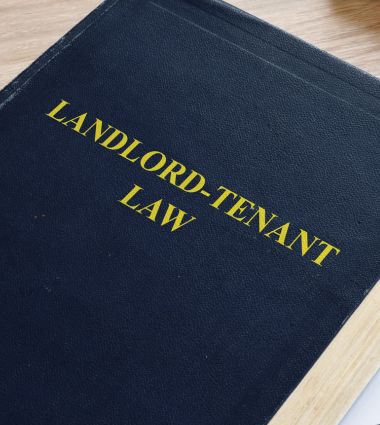What Are the Pros and Cons of Refinancing Mortgage in Canada?
When thinking about refinancing mortgages in Canada, it is important to carefully weigh the potential benefits and risks. Refinancing can help you secure a lower interest rate or change the terms of your loan, but it also has costs. You can make an informed decision about refinancing by learning about some of the pros and cons.
The potential advantages include lowering your monthly payments, shortening your amortization period, and accessing your home equity. However, you need to factor in closing costs, prepayment penalties, and the possibility of higher interest rates in the future. By understanding the full picture, you will be better equipped to determine if refinancing makes sense for your financial situation and goals. With the right information and analysis, you can decide whether refinancing your Canadian mortgage is the right move.
What is a Mortgage Refinance?
A mortgage refinance refers to the process of replacing your existing mortgage with a new one. Typically, homeowners refinance to take advantage of lower interest rates, shorten or lengthen the amortization period, reduce high-interest debts, or withdraw equity from their property.

When interest rates drop significantly, refinancing to a lower rate can save you thousands of dollars in interest charges over the life of your mortgage. Shortening the amortization period through refinancing can help you pay off your mortgage faster and save on interest. Lengthening the amortization, on the other hand, can lower your payments by spreading the principal over more years.
Refinancing is not without costs, however. In addition to legal and appraisal fees, you may face penalties from your existing lender if you break your current mortgage contract early. You need to calculate whether the savings from the new mortgage will offset these costs within a reasonable period to determine if refinancing makes financial sense in your situation.
If home values have increased substantially since you obtained your original mortgage, you may be able to withdraw some of the equity in your property through a cash-out refinance. The new mortgage would be for an amount higher than what you currently owe, with the difference being given to you in cash. This can be an easy way to access funds for home renovations, investments, or other major expenditures. Tapping into your home equity does reduce your ownership stake and can be risky if property values decline.
Mortgage refinancing in Canada can be a useful financial tool for homeowners when interest rates are favorable and closing costs are affordable. But like any tool, it needs to be used properly and judiciously based on your unique circumstances. Seeking advice from a mortgage professional is recommended to determine if refinancing your mortgage aligns with your financial goals.
How a Mortgage Refinance Works in Canada?
The mortgage refinance process:

To refinance your mortgage, you will need to reapply for a new mortgage loan. This involves going through an application process similar to when you first obtained your mortgage. You will need to provide income documentation, tax returns, bank statements, and details on your property. The lender will reassess your credit score, income, expenses, loan-to-value ratio, and other factors to determine if you qualify for a new mortgage with preferable terms.
Closing costs and fees
There are closing costs associated with refinancing, including appraisal fees, application fees, and legal fees. The total closing costs typically range from 1% to 3% of the mortgage amount. You will need to determine if the savings from a lower interest rate and modified terms offset these fees. It often takes several years of lower payments to recoup the closing costs, so you must plan to keep the mortgage for some time.
Impact on interest rate and payments
By refinancing, you can often obtain a lower interest rate, which reduces your monthly payments. You may also be able to switch from a variable rate to a fixed-rate mortgage to provide more stability. The refinanced loan may have different terms, such as switching from a 25-year to 20-year amortization. Your overall interest costs decrease with a shorter amortization and lower rate. However, your payments increase due to higher principal payments. You need to evaluate your budget to ensure the new payments are affordable.
Refinancing a mortgage in Canada allows you to renegotiate your current mortgage for preferable terms, such as a lower interest rate or shorter amortization. However, there are fees and costs involved, and the process requires going through another application and approval procedure with your lender or a new lender. With an improved financial situation or mortgage terms, refinancing could significantly benefit you by reducing interest paid over the life of your mortgage.
Pros of Refinancing Your Mortgage in Canada
In Canada, refinancing your mortgage has some benefits:
Lower Interest Rates
Refinancing your mortgage when interest rates decrease can result in a lower rate on your home loan. This means your interest charges will be lower, allowing more of your payment to go toward the principal. Over the life of the loan, this can result in thousands of dollars in interest savings.
Reduced Monthly Payments
If you refinance into a lower interest rate, your monthly payment amount may decrease. This can free up cash flow to pay off other debts or for other expenses. However, refinancing into a longer-term may lower payments but increase the total interest paid over the life of the loan.
Change in Loan Term
When you refinance, you have the option to change your loan term. You may shorten your term to pay the mortgage off sooner or lengthen the term to lower your payments. Be aware a longer term means higher total interest charges. However, a shorter term reduces the amount of interest paid and builds equity faster.
Access to Equity
If your home has gained value since purchasing, you may be able to withdraw equity through a cash-out refinance. The equity in your home can be used for home improvements, debt consolidation, education expenses, or other major purchases. However, withdrawing equity reduces your home equity and may increase your loan-to-value ratio.
Refinancing a mortgage in Canada may provide the benefits of a lower interest rate, reduced payments, a change in loan term, and access to your home's equity. However, there are costs associated with refinancing, and it is not right for every homeowner's situation. Analyze your circumstances carefully to determine if refinancing your mortgage makes financial sense.
Cons of Refinancing Your Mortgage in Canada
In Canada, refinancing your mortgage can have some drawbacks:
Closing Costs and Fees
Refinancing a mortgage often comes with significant upfront fees, such as appraisal fees, origination fees, and legal fees. These closing costs can amount to thousands of dollars, which reduces your savings from a lower interest rate. You need to calculate the breakeven point to determine how long it will take to recoup the fees through interest savings.
Prepayment Penalties
If you have a fixed-rate mortgage, you may face prepayment penalties for paying off the mortgage early by refinancing. These penalties are typically a percentage of the remaining mortgage balance, which could cost you thousands of dollars. Some lenders waive prepayment penalties after a certain period, often around 3-5 years into the term.
Longer Loan Terms
While lower interest rates often tempt homeowners to refinance into a longer mortgage term, you end up paying more interest over the life of the loan. You need to weigh the interest savings versus a longer amortization period. For some, a longer term provides needed relief on monthly payments. For others, keeping a shorter term and paying the mortgage off sooner is preferable.
Potential for Higher Rates
Interest rates change frequently. While rates may be lower when you start the refinancing process, they could increase by the time your new mortgage is funded. This results in a higher rate than your current mortgage and eliminates any potential savings. It is best to lock in an interest rate as soon as you begin the refinancing process to avoid potential rate hikes.
Resetting Amortization
When you refinance, your mortgage amortization starts over at 30 years. This means the amount of interest paid towards the principal balance in the early years of the new mortgage is very small. You have to pay the mortgage for many years again before making significant progress on paying down the principal. For some, this drawback outweighs interest rate savings.
Conclusion
Eventually, the decision to refinance your mortgage is a personal one that depends on your unique financial situation and goals. Carefully weigh the pros and cons, run the numbers, and consult with financial advisors to determine if it makes sense for you. While refinancing can provide real benefits like lowering your interest rate and monthly payments, it also comes with costs like prepayment penalties and closing fees. Make sure you understand the full implications before moving forward. With the right research and guidance, you can make an informed choice about refinancing that supports your long-term financial well-being.
Real Estate
Family Law
Wills & Estates
Immigration
Join Our Mailing List.
Sign up with your email to receive our newsletter and stay informed about the latest legal developments and special offers.



















































































